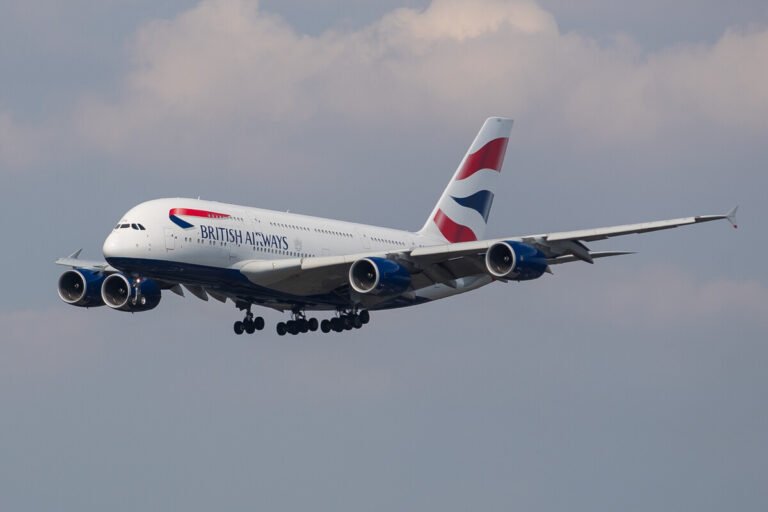British Airways Captain Caught Stealing Food
A British Airways (BA) training captain has been caught stealing food from the airline’s headquarters, Waterside, near London Heathrow Airport (LHR). Despite his high-ranking position and substantial salary, the captain received only a warning.
The pilot, with over two decades of service at British Airways, serves as an Airbus A380 training captain. According to reports, he was recorded on CCTV repeatedly taking food and drinks without payment at the self-service café within the headquarters.
British Airways A380 Captain’s Actions
- The café provides items like sandwiches, pastries, crisps, cookies, and coffee for self-scanning and payment.
- The captain, earning approximately £170,000 annually, neglected to pay, acting as if the café was a personal pantry.
- His responsibilities include training and qualifying other pilots on the Airbus A380, British Airways’ largest aircraft, which accounts for his frequent presence at the headquarters.
Internal Response and Reaction
After the incident surfaced through CCTV footage, the captain faced a meeting with management. Only a warning was issued in response to his recurrent misbehavior.
An insider noted the surprise among executives, emphasizing that while a mistake might be excusable once, repeated actions show a deliberate pattern, casting doubts given his substantial salary.
Furthermore, other senior managers were observed engaging in similar misconduct, receiving warnings as well. This discrepancy in discipline, with less leniency likely for junior staff such as cabin crew, has attracted criticism.
Disciplinary Differences Highlighted
The incident underscores inconsistencies in British Airways’ disciplinary measures. The perceived leniency towards senior staff contrasts with likely harsher penalties for lower-ranking employees in comparable scenarios.
Comparable Case with Qatar Airways
A similar situation occurred at Qatar Airways (QR), where a cabin crew member was terminated after stealing a passenger’s phone during a flight from Doha to Singapore. The incident led to formal complaints to aviation authorities, with criticism directed at the airline’s limited compensation measures.
Tracking data revealed the phone moved from a crew hotel in Singapore to the Philippines. Qatar Airways confirmed the theft, resulting in the dismissal of the staff member involved. The passenger argued that the airline’s compensation was inadequate, covering only the phone replacement cost, SGD 949 (about £560), without addressing subsequent travel disruptions.
Further complications arose when Qatar Airways’s response mischaracterized the incident as involving unattended belongings, prompting formal complaints to the Qatar Civil Aviation Authority and Singapore’s Civil Aviation Authority (CAAS).
Conclusion
The case of the British Airways captain has highlighted issues surrounding disciplinary standards within airlines, suggesting potential double standards that could undermine workforce morale. Criticism continues to grow, calling for more consistent and equitable handling of such incidents.

